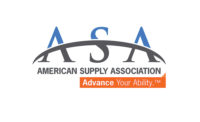The American Supply Association is among more than 110 organizations that wrote to McConnell, President Trump, Speaker of the House Nancy Pelosi urging any fiscal and economic response to help businesses survive the crisis match the scale and intensity of the steps being taken to end the pandemic.
“Schools, workplaces, and entire industries have been closed in an effort to slow the spread of the disease. These steps are unprecedented, as is the speed and severity of the economic collapse they have precipitated,” an excerpt of the letter notes. “The operations of millions of businesses are threatened, together with the jobs of the millions of workers they employ. Individually and family-owned companies operate on their cash flow, and that cash flow has been severely disrupted in the past week – their costs are up and their revenue flows are down, if not shut off completely. The public response to the pandemic should be over in a few months, but the negative effects of lost jobs and closed businesses will be with us for much longer.”
In the letter, the organizations are urging the response from Washington to minimize the number of businesses closed and workers unemployed to be coordinated, massive and focused on ensuring all businesses have the resources necessary to ride out the pandemic.
The more than 110 organizations are urging Washington to generate a response to include, but not limited to:
• Immediately provide readily accessible, unsecured credit to businesses of all sizes to ensure they have the cash to pay their workers, rent, and other costs during this crisis. While Congress, Treasury and the Federal Reserve have recently announced policies to increase the availability of credit to some businesses, these policies need to be expanded to make certain they are comprehensive and that the credit is readily available to all operating businesses in the short term.
• Suspend the filing of business returns and the payment of all business taxes to the federal government for the duration of the pandemic. These suspended taxes should include taxes owed for the 2019 tax year, estimated payments for 2020, and all payroll tax obligations. The suspension should be broad and apply to all businesses. When the pandemic is over, the repayment of any deferred taxes should be spread out over time.
• Amend the Tax Code to, among other items, restore the ability of businesses to carryback any net operating losses against previous year tax payments; suspend the application of the Section 163(j) limitation on interest expense deductions for tax year 2020 to avoid penalizing businesses for borrowing during this crisis; and suspend the Section 461(l) loss limitation on pass-through businesses to allow the owners of pass-through businesses to fully deduct any losses they incur this year.
ASA and its partner groups believe the key to helping businesses survive the crisis is to reduce their costs and increase their cash flow as much as possible in the coming weeks, and the above-outlined policies are designed to accomplish that and ensure businesses are not penalized by the Tax Code if they lose money or increase debt levels in 2020.









